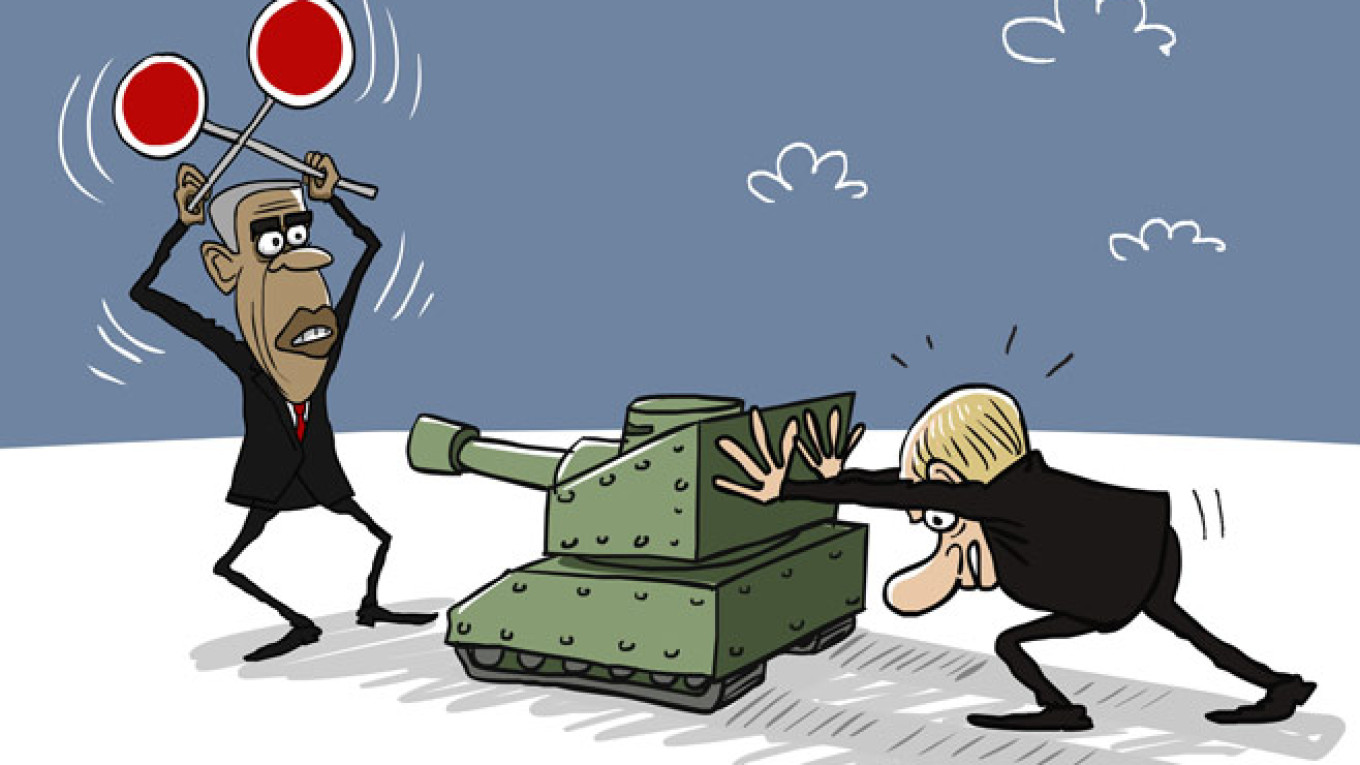In the world of diplomacy, “signals” and perceived nuances are vital indicators that governments use to interpret the intentions of other countries. Such signals are especially important when dealing with non-democratic regimes.
Dictatorships tend to see the world in a distorted light, which means that they are prone to misinterpreting the signals. Columbia scholar Jack Snyder has described this tendency as “mythmaking.” These misinterpretations begin wars, even wars the regimes are unlikely to win.
Russia's foreign policy makers combine their obsession with personalities with black and white Manichean thinking. Intelligence dossiers on U.S. scholars and officials provide the Kremlin with information on the personalities, biases, and apparent motivations of those in the U.S. administration dealing with Russian interests.
Russian leaders use these dossiers to decipher what an American president and his appointees intend to signal through their statements and actions, regardless of official policy pronouncements or even common sense.
U.S. President Barack Obama has sent some powerful signals to the Kremlin — whether intended or not. Moscow saw Obama’s appointment of Michael McFaul and Fiona Hill as his top Russia hands through the prism of their academic writings on democracy promotion in the post-Soviet space.
Putin broke diplomatic protocol during a meeting with U.S. Secretary of State John Kerry by accusing McFaul of attempting to organize a color revolution in Russia. Significantly, Kerry did not admonish these unfounded attacks on his own ambassador — an unfortunate signal to Putin.
One can only speculate how the Kremlin interpreted the appointment of Celeste Wallander as the senior director for Russia and Eurasia on the National Security Council — in effect, Obama’s current most senior Russia hand together with Victoria Nuland at the State Department.
Wallander has a long record of criticizing not only NATO expansion, but NATO itself. As one of her graduate students at Harvard, I recall her becoming visibly agitated in class when students reflected opinions favorable to NATO’s role in European security. At a panel on NATO expansion in 1998, she blurted in a choked voice, as if about to cry, “How many times do we have to lie to the Russians?” referring to alleged U.S. assurances of not expanding NATO beyond East Germany. (Turns out this view of history is not entirely correct.)
Her tone clashed with that of fellow panelist Andrei Kortunov, a longtime insider of Russian policymaking. Kortunov treated the imminent acceptance of Hungary, the Czech Republic and Poland into NATO with level-headedness.
Moscow pays careful attention to Harvard faculty whose influence in forming policy on Russia can be profound.
The Kremlin’s intelligence collection would surely have documented Wallander’s public and private anti-NATO proclivities, though her writings on the subject displayed more balance.
Obama's signals to Russia on personnel decisions appear to reinforce other actions.
One was Obama’s long apology to Putin, during a meeting near Moscow, for the policies of his predecessor, George W. Bush. Another was the botched attempt at “reset” following the Russian-Georgian war in 2008.
In a 2012 meeting with Russia’s then-President Dmitry Medvedev, Obama pleaded for Putin to give him more “space” on a range of issues, particularly on the thorny subject of missile defense in Europe. “This is my last election,” Obama said, apparently unaware that journalists were picking up his comments over an open microphone. “After my election I have more flexibility.”
After Putin granted him the requested “space,” Obama canceled a long-standing missile-defense project with Poland—precisely on the anniversary of the Soviet-Nazi invasion of that key ally.
What signals is Obama sending Putin now when he reverses U.S. sanctions on Iran and its nuclear weapons program, announced the intention to end the five-decade ban on Cuba without extracting any concessions from the regime and appointed an anti-NATO scholar to an important foreign policy position?
Obama’s careless signals have already been sent, as have Russian tanks into Ukraine.
Fredo Arias-King is founder of the Washington-based academic quarterly ''Demokratizatsiya: The Journal of Post-Soviet Democratization.''
A Message from The Moscow Times:
Dear readers,
We are facing unprecedented challenges. Russia's Prosecutor General's Office has designated The Moscow Times as an "undesirable" organization, criminalizing our work and putting our staff at risk of prosecution. This follows our earlier unjust labeling as a "foreign agent."
These actions are direct attempts to silence independent journalism in Russia. The authorities claim our work "discredits the decisions of the Russian leadership." We see things differently: we strive to provide accurate, unbiased reporting on Russia.
We, the journalists of The Moscow Times, refuse to be silenced. But to continue our work, we need your help.
Your support, no matter how small, makes a world of difference. If you can, please support us monthly starting from just $2. It's quick to set up, and every contribution makes a significant impact.
By supporting The Moscow Times, you're defending open, independent journalism in the face of repression. Thank you for standing with us.
Remind me later.


